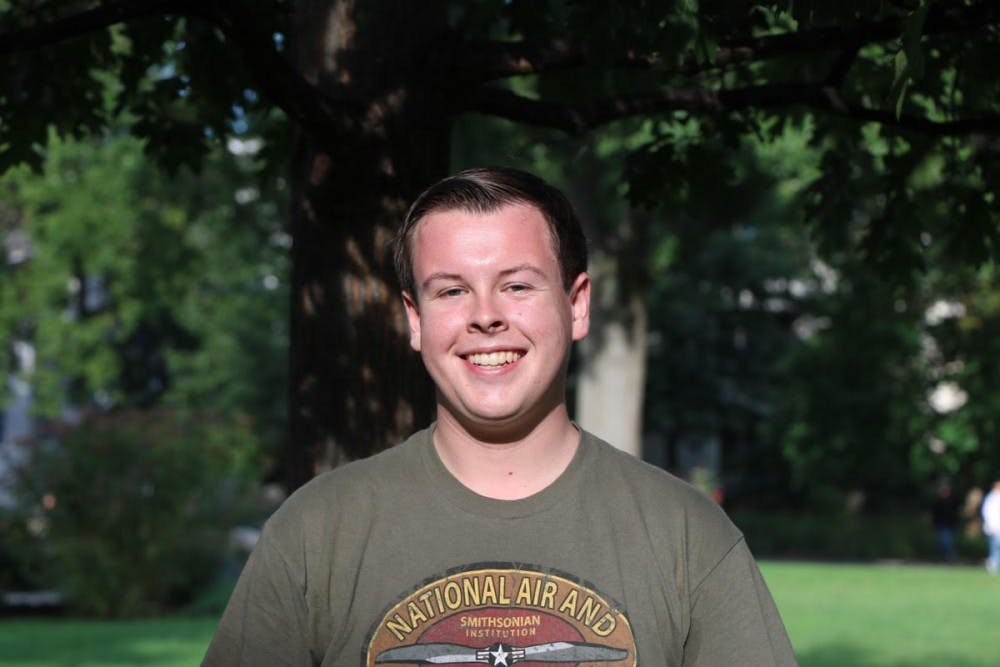Idealizing “cooperation” in today's polarized political system ignores the enormous contemporary social issues that divide political parties through personal beliefs rather than fiscal differences. Being “bipartisan” in America today means choosing to compromise with people who believe the following: transgender Americans don’t have the right to their own gender identity, women shouldn't have the power to make decisions about their own bodies and citizens should not exercise their right to protest police violence against Black Americans.
We don’t live in an era where Republicans and Democrats can, or should, leave the office and go get a beer after work. We’re fighting against the purposeful disenfranchisement and disregard of the rights of minority groups in America to exist and thrive safely and equitably.
American University made their choice last week at a celebratory event for the opening of the Sine Institute, a new bipartisan policy institute at AU. The University made it clear that the administration would rather be seen as “open-minded” than to promote the safety and inclusion of its own students by choosing Sen. Bob Corker of Tennessee to be the featured speaker at the event.
The commencement of the Sine Institute of Policy and Politics featured a nearly hour-long “Conversation with Bob Corker.” Taking even a brief look at his record shows what bipartisanship means to him, and throws a dark shadow on the University’s perspective on what it means to “work across the aisle.”
Sen. Corker is defined as one of the only Republicans willing to stand up to President Donald Trump, yet he fails in moments of critical importance to actually follow through with his rhetoric. He is the manifestation of contemporary bipartisanship in America: nice words that come too late and are not backed by real action.
While Corker did condemn Trump’s comment that there were “many good people on both sides” at the white nationalist rally in Charlottesville, Virginia in 2017, he made no protest at white nationalist Steve Bannon’s appointment as a senior adviser to the president.
Corker also voted to confirm Attorney General Jeff Sessions, ignoring his history marred by accusations of racism from his own constituents and even Corretta Scott King. AU chose him as a featured speaker, despite making a commitment to do more to make black students on campus feel safe after its own history of racist incidents that traces back to its very founding.
The senator has also repeatedly denied a woman’s right to control their own bodies by voting down abortion bills. He supported Christine Blasey Ford’s right to be heard, but will be supporting Brett Kavanaugh’s Supreme Court nomination after hearing Ford’s testimony, saying “nothing that has been presented corroborates the allegation.”
Corker took pride in voting to oppose same-sex marriage in Tennessee on the first day of early voting, voted against expanding hate crime status to attacks against LGBTQ Americans and called allowing transgender students to use the bathroom that matched their gender identity “very disappointing.” American University says that it “prides itself in being an affirming place for the lesbian, gay, bisexual, transgender, queer, and asexual community and its allies” yet chose Corker to represent someone we should look to compromise with.
If Bob Corker represents the people we should aspire to work with someday, then one thing is clear: bipartisanship in American politics is dead.
Creating dialogue is important, and people should have a right to speak. However, when their platform is based on a series of beliefs and policies that devalue and ignore other Americans, there is no shared ground for compromise. Bipartisanship in its current form serves no one, and will continue to be useless until all Americans’ voices and rights are respected across the political spectrum. Cooperation can’t exist when the very basis of “coming together” allows the continued neglect of minority groups across the country.
Choosing Corker to speak at this event demonstrates that AU is not interested in “conversations on the substance” of policy, but rather the appearance of it. What is the substance of policy if not the very people it affects?
If bipartisanship means aspiring to work with people that deny the agency and constitutional rights of our friends, relatives and fellow AU students, then it is a goal that no one in the AU community should feel safe accepting.
Braeden Waddell is a sophomore in the School of Communications and a columnist for The Eagle.





